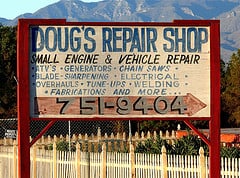It’s so easy and dangerous to get caught up in and pulled into a small, confining box by the thing you sell. Your product, your service, your place. Easy to forget how little anybody cares about that, when you care about it so much.” ~ No B.S. Insider’s Connection, September 2009 Edition
 It’s no secret that we no longer do business the same way. Price comparisons are easy on the Internet. It’s where we do our research before making the purchase. Price drives customer choice, making yesteryear’s value proposition irrelevant. Yes, thanks to the Internet and intense competition from previous non-contenders, many products and services have become commodities. This changes everything.
It’s no secret that we no longer do business the same way. Price comparisons are easy on the Internet. It’s where we do our research before making the purchase. Price drives customer choice, making yesteryear’s value proposition irrelevant. Yes, thanks to the Internet and intense competition from previous non-contenders, many products and services have become commodities. This changes everything.
Competing with Loss Leaders
For example, the plumbing shop selling quality fixtures now competes with loss leaders at Home Depot, Lowes, or any number of Internet stores, even when the end result is MORE expensive for the customer. Consider the time spent comparison shopping, only to learn later that the faucet you bought uses plastic, throw-away parts that can’t be repaired by your local plumber, or the low-priced water heater you purchased isn’t really that simple to install. Ever try to solder a pipe when the water shut-off doesn’t quite stop the trickle of water?
What about the hobby industry? At last year’s iHobbyExpo in Chicago, brick and mortar retailers expressed outrage over the abundance of inexpensive hobby products available online. “We can’t compete!” was their battle cry.
Another relevant example is in the specialty sign industry. Customers tend to research their options online, but make their purchase with the lowest price vendor. Service for that sign isn’t even on their radar.
Examples of this are rampant in our own industry. Some will always view copywriting, graphic design, and website development as commodities. You CAN buy it cheaper in India, the Phillipines or Vietnam. Some of it is even good! Much of it isn’t.
Adapt to the Changing Marketplace
In each of these examples, the businesses that will make it are those who step back, remind themselves “It’s not about me,” and adapt to the changing marketplace. Get over you. Get into them! What does your market want? What do they need? How can you help?
The plumbing shop with an educational blog and a strong Internet presence is head and shoulders above the competition. They can use that blog to educate potential customers about the difference between quality and throw-away parts. Tell readers how to do it themselves … once we see all the work that’s involved, we’re more likely to call you than actually do it! The key is a strong Internet presence. Remember that we research our options online. We’ve got to find you on Google, Yahoo and Bing. Once we find you, reel us in with your information, your personality, your work ethic, a great offer we’ll still remember 30 days down the road. Get us on your email list. We may still buy our next toilet at Home Depot, but when we can’t get the darned thing to stop leaking, you can bet we’ll be calling you.
Likewise, to the hobby retailer with no Internet store … why not add e-commerce to your business plan? What’s stopping you from competing on the Internet retailer’s turf? If that’s where your market is buying, why are you resisting something so fundamental? Get on the bus!
What are you doing to adapt to the changing needs of your market? How has your market changed in the past few years? What would you like to see more of in Inside Line?
Photo Credit: .Larry Page on flickr

Leave a Reply